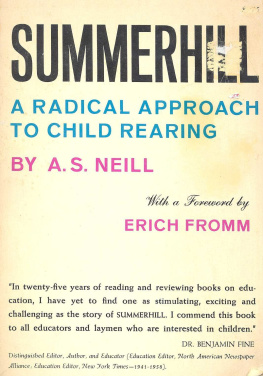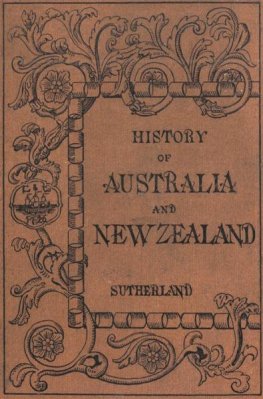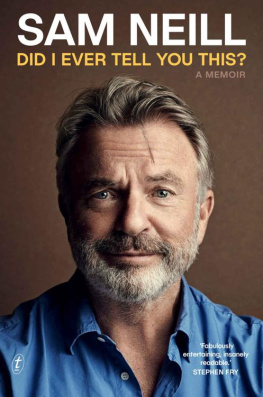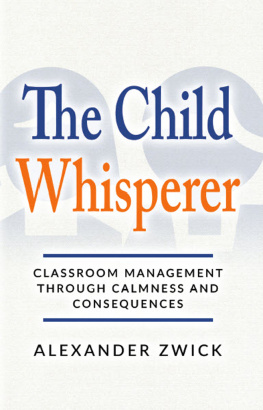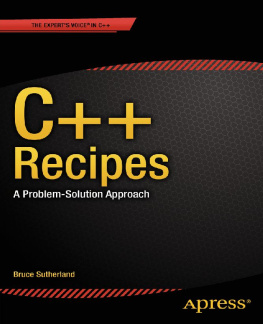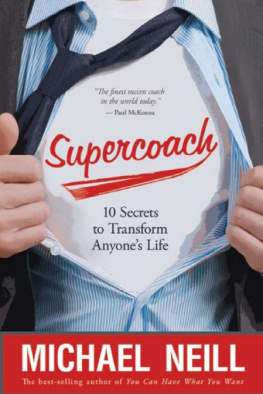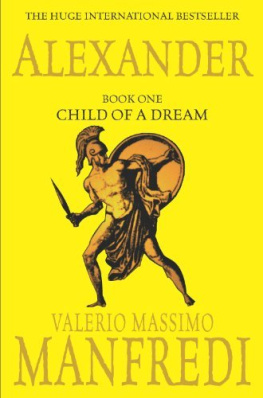Alexander Sutherland Neill - Summerhill: A Radical Approach to Child Rearing
Here you can read online Alexander Sutherland Neill - Summerhill: A Radical Approach to Child Rearing full text of the book (entire story) in english for free. Download pdf and epub, get meaning, cover and reviews about this ebook. year: 0, genre: Science. Description of the work, (preface) as well as reviews are available. Best literature library LitArk.com created for fans of good reading and offers a wide selection of genres:
Romance novel
Science fiction
Adventure
Detective
Science
History
Home and family
Prose
Art
Politics
Computer
Non-fiction
Religion
Business
Children
Humor
Choose a favorite category and find really read worthwhile books. Enjoy immersion in the world of imagination, feel the emotions of the characters or learn something new for yourself, make an fascinating discovery.
- Book:Summerhill: A Radical Approach to Child Rearing
- Author:
- Genre:
- Year:0
- Rating:5 / 5
- Favourites:Add to favourites
- Your mark:
- 100
- 1
- 2
- 3
- 4
- 5
Summerhill: A Radical Approach to Child Rearing: summary, description and annotation
We offer to read an annotation, description, summary or preface (depends on what the author of the book "Summerhill: A Radical Approach to Child Rearing" wrote himself). If you haven't found the necessary information about the book — write in the comments, we will try to find it.
Summerhill: A Radical Approach to Child Rearing — read online for free the complete book (whole text) full work
Below is the text of the book, divided by pages. System saving the place of the last page read, allows you to conveniently read the book "Summerhill: A Radical Approach to Child Rearing" online for free, without having to search again every time where you left off. Put a bookmark, and you can go to the page where you finished reading at any time.
Font size:
Interval:
Bookmark:
Summerhill is the most unusual school in the world. Heres a place where children are not compelled to go to class they can stay away from lessons for years, if they want to. Yet, strangely enough, the boys and girls in this school LEARN! In fact, being deprived of lessons turns out to be a severe punishment.
Summerhill has been run by A. S . Neill for almost forty years. This is the worlds greatest experiment in bestowing unstinted love and approval on children. This is the place, where one courageous man, backed by courageous parents, has had the fortitude to actually apply without reservation the principles of freedom and non-repression.
The school runs under a true childrens government where the bosses are the children themselves. Despite the common belief that such an atmosphere would create a gang of unbridled brats, visitors to Summerhill are struck by the self-imposed discipline of the pupils, by their joyousness, the good manners. These kids exhibit a warmth and lack of suspicion toward adults, which is the wonder, and delight of even official British school investigators.
In this book A. S. Neill candidly expresses his unique - and radical opinions on the important aspects of parenthood and child rearing. These strong commendations of authors and educators attest that every parent who reads this book will find in it many examples of how Neills philosophy may be applied to daily life situations. Educators will find Neills refreshing viewpoints practical and inspiring.
Reading this book is an exceptionally gratifying experience, for it puts into words the deepest feelings of all who care about children, and wish to help them lead happy, fruitful lives.
A RADICAL APPROACH TO CHILD REARING
By A. S. NEILL
With a Foreword by Eric Fromm
1960
TO HAROLD H. HART
I hope you will get a much credit (or blame) for this book, as I will. You have acted, not as a publisher, but as a believer in what Summerhill has done and is doing.
Your patience has amazed me. To sort out thousands of words from four of my earlier books, to edit them and combine them with new material - this has been a formidable task.
In your visits to the school, you showed that your chief concern was to tell America about something you saw and loved and believed in. Here you were part of the school. You saw all the fundamentals and rightly ignored what did not matter, for example, the untidiness of happy children.
I hereby elect you an honorary pupil of Summerhill.
A. S. Neill
October 30, 1959
Summerhill, Leiston, Sufflolk, England
Foreword by Erich Fromm
A Word of Introduction by the Author
I. SUMMERHILL SCHOOL
The Idea of Summerhill
A Look at Summerhill
Summerhill Education vs. Standard Education
What Happens to Summerhill Graduates
Private Lessons at Summerhill
Self-Government
Coeducation
Work
Play
Theater
Dancing and Music
Sports and Games
Report of the British Government Inspectors
Notes on His Majestys Inspectors Report
The Future of Summerhill
II. CHILD REARING
The Unfree Child
The Free Child
Love and Approval
Fear Inferiority and Fantasy Destructiveness
Lying
Responsibility
Obedience and Discipline
Rewards and Punishment
Defecation and Toilet Training
Food
Health and Sleep
Cleanliness and Clothing
Toys
Noise
Manners
Money
Humor
III. SEX
Sex Attitudes
Sex Instruction
Masturbation
Nudity
Pornography
Homosexuality
Promiscuity, Illegitimacy, and Abortion
IV. RELIGION AND MORALS
Religion
Moral Instruction
Influencing the Child
Swearing and Cursing
Censorship
V. CHILDRENS PROBLEMS
Cruelty and Sadism
Criminality
Stealing
Delinquency
Curing the Child
The Road to Happiness
VI. PARENTS PROBLEMS
Love and Hate
Spoiling the Child
Power and Authority
Jealousy
Divorce
Parental Anxiety
Parental Awareness
VII. QUESTIONS AND ANSWERS
In General
About Summerhill
About Child Rearing
About Sex
About Religion
About Psychology
About Learning
During the eighteenth century, the ideas of freedom, democracy, and self-determination were proclaimed by progressive thinkers; and by the first half of the 1900s, these ideas came to fruition in the field of education. The basic principle of such self-determination was the replacement of authority by freedom, to teach the child without the use of force by appealing to his curiosity and spontaneous needs, and thus to get him interested in the world around him. This attitude marked the beginning of progressive education and was an important step in human development.
But the results of this new method were often disappointing. In recent years, an increasing reaction against progressive education has set in. Today, many people believe the theory itself erroneous and that it should be thrown overboard. There is a strong movement afoot for more and more discipline, and even a campaign to permit physical punishment of pupils by public school teachers.
Perhaps the most important factor in this reaction is the remarkable success in teaching achieved in the Soviet Union. There the old-fashioned methods of authoritarianism are applied in full strength; and the results, as far as knowledge is concerned, seem to indicate that we had better revert to, the old disciplines and forget about the freedom of the child.
Is the idea of education without force wrong? Even if the idea itself is not wrong, how can we explain its relative failure?
I believe the idea of freedom for children was not wrong, but the idea of freedom has almost always been perverted. To discus this matter clearly we must first understand the nature of freedom; and to do this we must differentiate between overt authority and anonymous authority.
Overt authority is exercised directly and explicitly. The person in authority frankly tells the one who is subject to him, You must do this. If you do not, certain sanctions will be applied against you. Anonymous authority tends to hide the face that is being used. Anonymous authority pretends that there is no authority, that all is done with the consent of the individual. While the teacher of the past said to Johnny, You must do this. If you dont, Ill punish you; todays teacher says, I am sure youll like to do this. Here, the sanction for disobedience is not corporal punishment, but the suffering face of the parent, or what is worse, conveying the feeling of not being adjusted, of not acting the crowd acts. Overt authority used physical force; anonymous authority employs psychic manipulation.
The change from the overt authority of the nineteenth century to the anonymous authority of the twentieth was determined by the organizational needs of our modern industrial society. The concentration of capital led to the formation of giant enterprises managed by hierarchically organized bureaucracies. Large conglomerations of workers and clerks work together, each individual a part of a vast organized production machine which in order to run at all, must run smoothly and without interruption. The individual worker becomes merely a cog in this machine. In such a production organization, the individual is managed and manipulated.
And in the sphere of consumption (in which the individual allegedly expresses his free choice) he is likewise managed and manipulated. Whether it be the consumption of food, clothing, liquor, cigarettes, movies or television programs, a powerful suggestion apparatus is at work with two purposes: first, to constantly increase the individuals appetite for new commodities; and secondly, to direct these appetites into the channels most profitable for industry. Man is transformed into the consumer, the eternal suckling, whose one wish is to consume more and better things.
Next pageFont size:
Interval:
Bookmark:
Similar books «Summerhill: A Radical Approach to Child Rearing»
Look at similar books to Summerhill: A Radical Approach to Child Rearing. We have selected literature similar in name and meaning in the hope of providing readers with more options to find new, interesting, not yet read works.
Discussion, reviews of the book Summerhill: A Radical Approach to Child Rearing and just readers' own opinions. Leave your comments, write what you think about the work, its meaning or the main characters. Specify what exactly you liked and what you didn't like, and why you think so.

